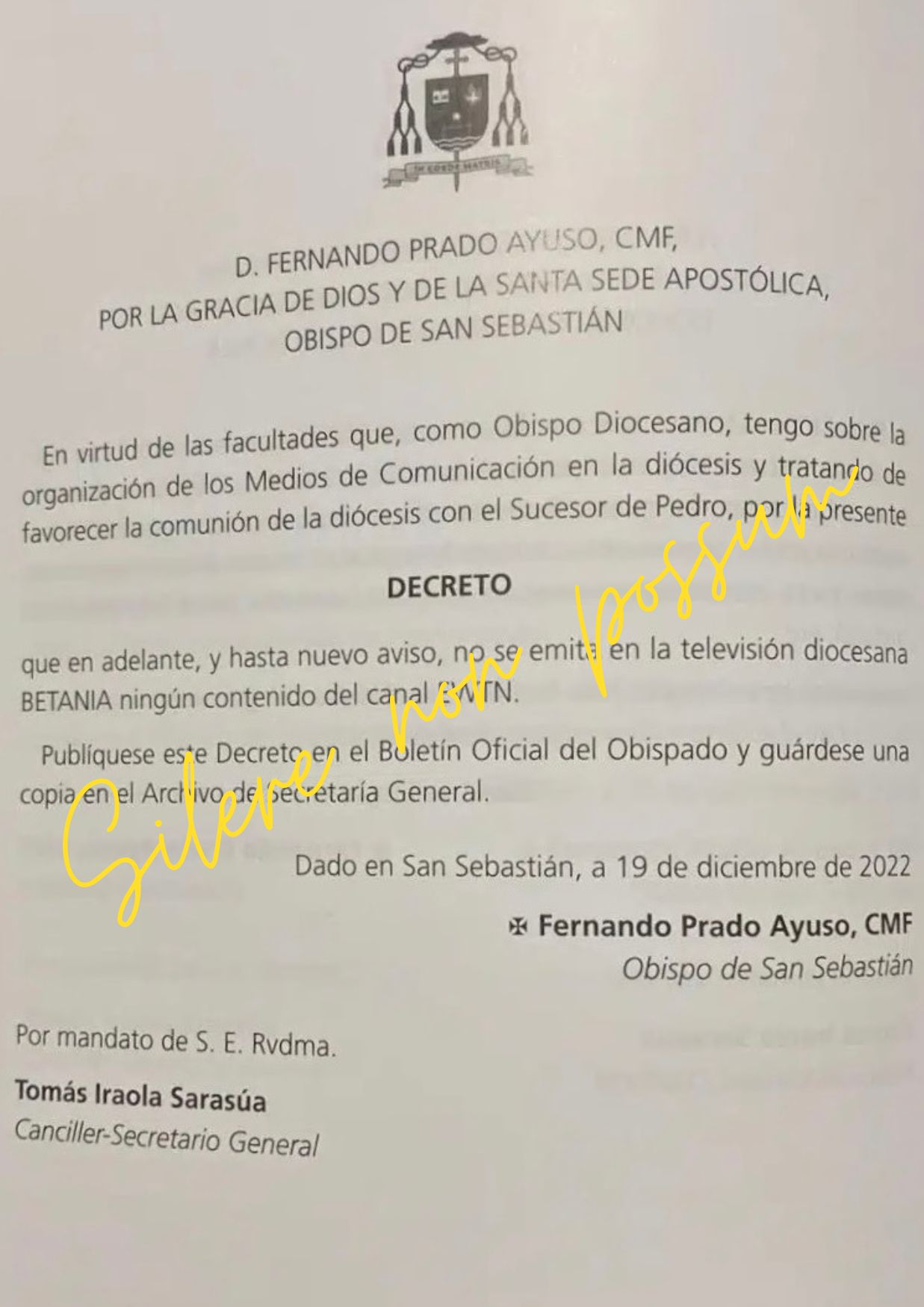Fernando Prado Ayuso published a decree censuring American television EWTN
🇮🇹 I vescovi di Francesco: sì al sinodo ma censurano chi non gli piace
Two weights and two measures.
Once again, this genuine motto can be said to be the driving force
behind the activities of the Supreme Pontiff and the bishops appointed
by him.
In the Church that says it is opening up to the world,
starting a dialogue with everyone and giving a voice to anyone who wants
to speak, we increasingly come across a considerable number of bishops
who censor those who do not think like them.
In the past, at
least, things were done without fear and with due solemnity. We would
have expected the promulgation of a bull Licet ab initio and the
appointment of a further council of cardinals,
'intelligent' as
Pope Francis would call them, to draw up a list of sites that cannot be
drawn on because they are too critical of the Augustus Pontiff.
Instead, in keeping with the current climate, His
Excellency Bishop Fernando Prado Ayuso has seen fit to sign a decree
categorically prohibiting the diocese's media from publishing content
from the American television station Eternal Word Television Network.


Within the diocesan bulletin of San Sebastián, the presbyters found this worrying surprise.
This climate of persecution and censorship of all those who raise questions about the work of the Pope is clearly in contradiction with the words of Francis, who continues to say: "Not listening is one of the evils of our time, even in the Church"
Also in his Message for the 56th World Communications Day, the Pontiff wrote: "On the contrary, human beings tend to flee the relationship, to turn their back and "close their ears" so they do not have to listen. The refusal to listen often ends up turning into aggression towards the other, as happened to those listening to the deacon Stephen who, covering their ears, all turned on him at once".
And again: "This is a symptom of the fact that, rather than seeking the true and the good, consensus is sought; rather than listening, one pays attention to the audience. Good communication, instead, does not try to impress the public with a soundbite, with the aim of ridiculing the other person, but pays attention to the reasons of the other person and tries to grasp the complexity of reality. It is sad when, even in the Church, ideological alignments are formed and listening disappears, leaving sterile opposition in its wake".
His Holiness' Secretary of State also lashed out at EWTN saying: "Catholic media, as you well know, play an important role in the task of the new evangelisation. This is why it is good that they feel themselves to be an active part of the life of the Church, first of all by living in a spirit of communion with the Bishop of Rome. This is all the more urgent today, at a time marked by excessively dramatic debates, even within the Church, which do not even spare the person and the Magisterium of the Pontiff".
This rhetoric, however, is clearly an abuse that the Pontiff himself is forcing. There have been discussions and debates in the Church since its inception. Peter and Paul are examples of this. Criticism and discussion do not break communion, rather they strengthen it. Those media that, rather than being servile, highlight light and shade and do so with love for Peter and, above all, for the Truth, must be appreciated.
Otherwise, by silencing all critical voices and even censoring them, one commits an abuse of conscience. Perhaps by making people believe that by criticising the Pope they are going to hell. Spanish bishop Fernando Prado Ayuso's decree is clearly an abuse and is also a flag to wave at Santa Marta to show how 'loyal to the master' one is. Besides, San Sebastián is not a cardinal's see, so this could be a point in his favour.
L.M.
Silere non possum
